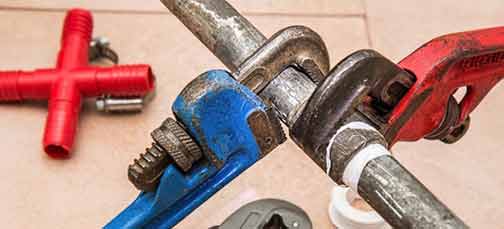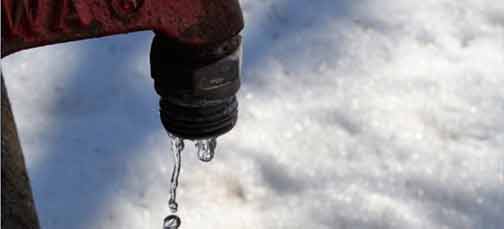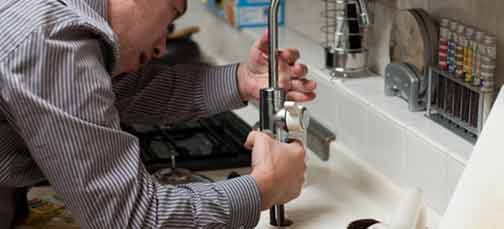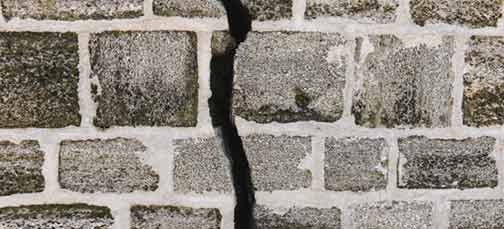
If left unattended, water leaks can be a homeowner’s worst nightmare, causing significant damage and costly repairs. From faulty plumbing systems to leaking fixtures and appliances, identifying and addressing these issues promptly is crucial. Below we’ll explore the most common causes of water leaks that homeowners face. By understanding these causes and learning how to address them effectively, you can protect your property, save money, and ensure a safe living environment for your family. Let’s delve into the world of water leaks and empower you to tackle them head-on.
Common Causes of Water Leaks
Faulty Plumbing Systems
One of the leading causes of water leaks in homes is a faulty plumbing system. Over time, pipes can deteriorate due to age, leading to cracks and leaks. Loose or damaged pipe connections can result in water seepage at the joints. Corrosion or rust buildup weakens the integrity of pipes, making them prone to leakage. Pipe joint failures can occur due to poor installation or wear and tear. Regularly inspecting your plumbing system is essential to detect any signs of aging, corrosion, or loose connections. If you notice persistent or worsening leaks, it’s advisable to choose a plumber to work with for professional expertise and reliable repairs.
Leaking Fixtures and Appliances
Leaking fixtures and appliances are another common cause of water leaks in homes. Dripping faucets waste water and can be a nuisance with the constant sound. Malfunctioning toilet flappers can result in continuous water running and unnecessary water usage. Faulty washing machine hoses are notorious for causing significant water damage if they rupture or leak. Additionally, leaking water heaters can not only result in water wastage but also affect the efficiency of your heating system. Promptly addressing these leaks by replacing faulty washers, seals, or components is crucial to prevent water wastage, reduce utility bills, and avoid potential damage to your home.

A dripping faucet can be very dangerous, especially if it’s external.
Roofing Issues
When it comes to water leaks, roofing issues can’t be ignored. Damaged or missing shingles create openings for water to penetrate your home during rainfall. Improperly sealed roof vents can be another vulnerable spot for water intrusion. Cracked or damaged flashing around chimneys, skylights, or roof valleys can allow water to seep in. Clogged gutters and downspouts can lead to water overflow, causing potential leaks and water damage.
Foundation Problems
Foundation problems can contribute to water leaks and require immediate attention. A cracked or shifting foundation can create openings for water to seep into your home. Improper drainage around the foundation can result in water pooling near the base, increasing the likelihood of leaks. Plumbing leaks beneath the foundation can go unnoticed for extended periods, causing water damage and structural issues. Remember, leaks in the basement can be very dangerous, leading to mold growth and compromising the structural integrity of your home. It’s crucial to consult with foundation specialists to assess and address any foundation problems promptly.
How to Address Water Leaks
Early Detection and Monitoring
Early detection of water leaks and monitoring are crucial in preventing water leaks and minimizing potential damage. Regularly inspecting your plumbing system, fixtures, and appliances can help you identify leaks or signs of deterioration. Keep an eye out for water stains, dampness, or unusual odors. Monitoring your water bills for unexpected increases can also indicate hidden leaks. To enhance monitoring, consider using leak detection devices and other technology to detect leaks before they become major problems.

One of the smartest things you could do when handling common causes of water leaks is to call a professional for help.
Fixing Plumbing System Leaks
When it comes to addressing plumbing system leaks, swift action is key. If you notice a water leak, the first step is identifying its source. That may involve visually inspecting visible pipes, checking for water stains, or employing leak detection equipment. Once the source is determined, repair or replace the damaged pipes or fittings promptly. For complex repairs or if you’re unsure about the best course of action, it’s advisable to contact a nearby plumbing professional.
Resolving Fixture and Appliance Leaks
Dripping faucets and faulty toilet flappers are common culprits that can often be fixed by replacing worn-out washers or seals. Similarly, addressing faulty components in appliances like water heaters and washing machines is essential to prevent leaks and ensure optimal efficiency. Upgrading to more efficient fixtures and appliances can also help prevent future leaks and conserve water.
Addressing Roofing Issues
As we’ve mentioned, unkempt roofing is one of the most common causes of water leaks. Regular roof inspections are essential to promptly identify and address issues that faulty roofing causes. Timely repairs or replacements of damaged roofing and ensuring proper roof ventilation can safeguard your home against water leaks. By implementing the following maintenance strategies, you can effectively safeguard your home against water leaks and protect its structural integrity:
- replacing damaged shingles,
- resealing roof vents,
- repairing flashing,
- maintaining clean gutters and downspouts.
Dealing with Foundation Problems
Plumbing leaks beneath the foundation can easily go undetected but cause substantial damage over time. To tackle these problems, contact foundation specialists who can assess and address the underlying issues. Fixing drainage problems, repairing foundation cracks, and locating and resolving plumbing leaks are crucial steps to prevent water intrusion and preserve the stability and safety of your home. Choose trusted professionals to ensure effective solutions and minimize the risk of future foundation-related leaks.

Promptly fixing some of the more serious cracks and issues in your home’s foundation is important for addressing current and preventing future water leaks.
Preventive Measures for Future Leaks
Preventive measures are vital to minimize the risk of future water leaks in your home. Insulating exposed pipes is a simple yet effective way to protect them from freezing and potential burst pipe emergencies during cold weather. Installing water leak detection systems adds an extra layer of security by alerting you to potential leaks early on. Regular maintenance of fixtures, appliances, and plumbing systems helps identify and address issues before they escalate into major leaks.
Protect Your Items During Repairs
While addressing water leaks is essential, protecting your belongings during repairs or renovations is also crucial. If you need to temporarily store furniture, electronics, or other valuables during the process, consider renting a storage unit. A secure and climate-controlled storage unit can safeguard your items until your home is leak-free and fully restored. Experts from City Movers also recommend utilizing certain packing and inventory strategies while your items are in the unit. That way, you can more easily access them if needed.
Conclusion
Water leaks can wreak havoc on your home and finances if left unaddressed. By understanding the common causes of water leaks and taking proactive steps to resolve them, homeowners can prevent costly repairs and maintain a safe living environment. Remember, early detection and regular maintenance are key to preventing water leaks. When faced with plumbing issues, choose a nearby local plumber to work with for prompt and reliable service. By staying vigilant and taking preventive measures, you can protect your home from the damaging effects of water leaks and ensure peace of mind for years to come.